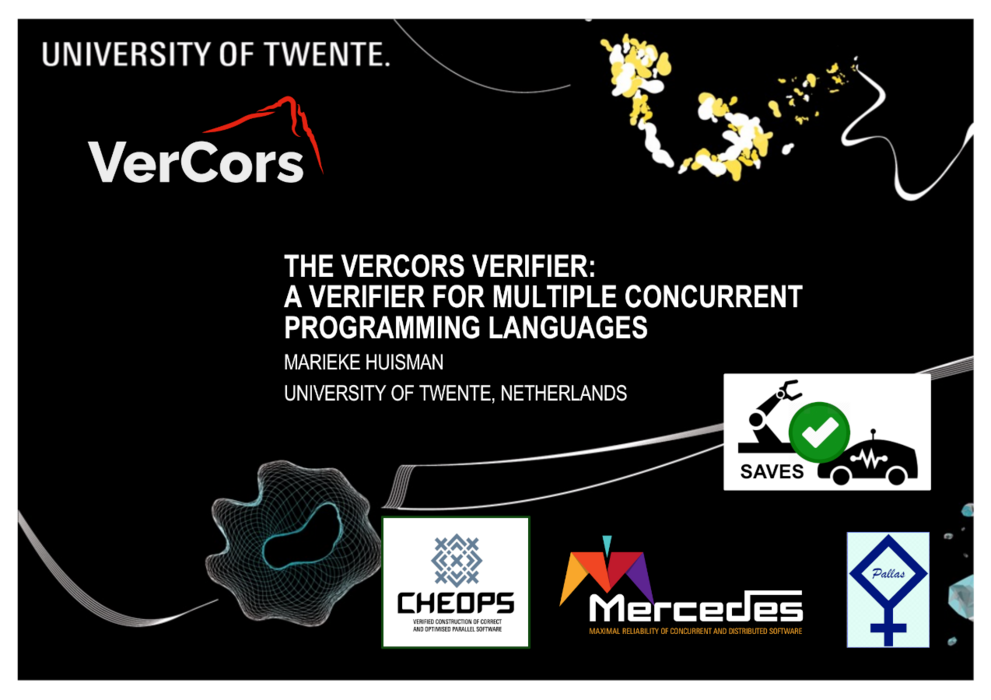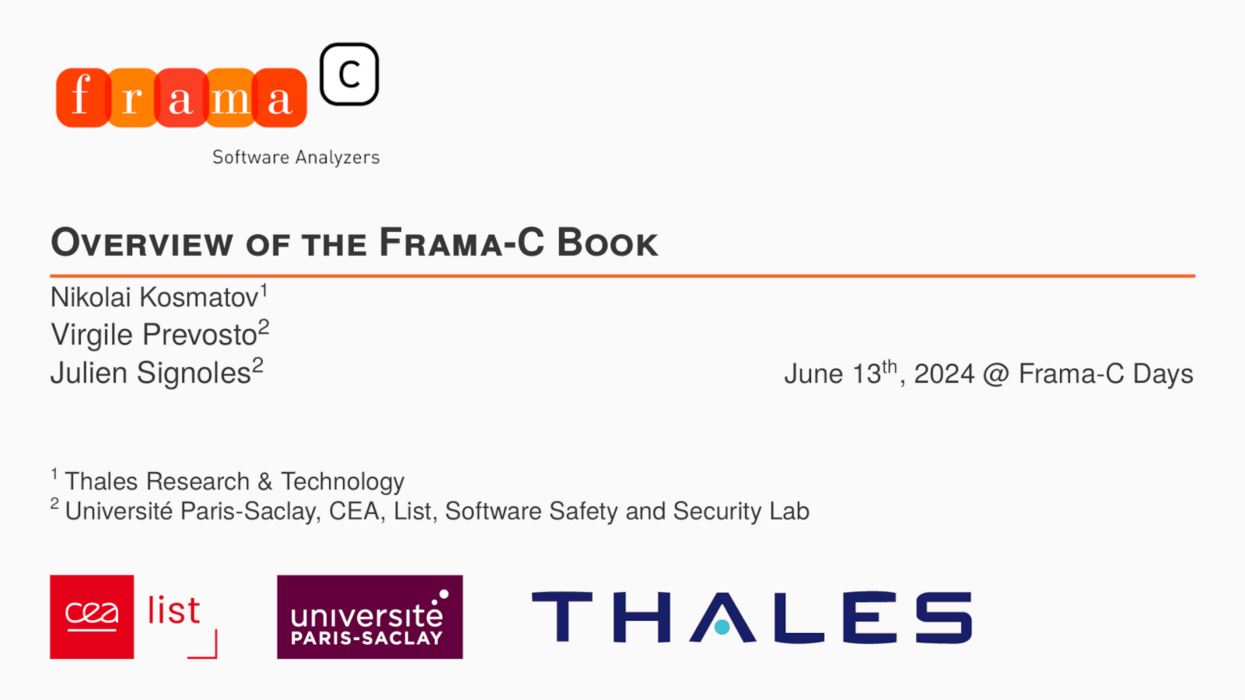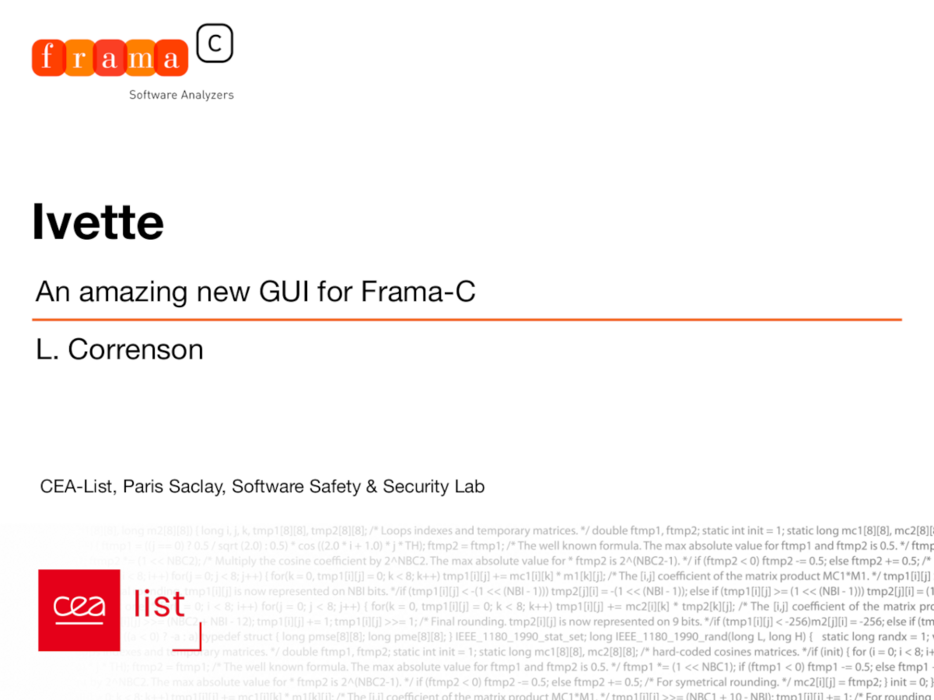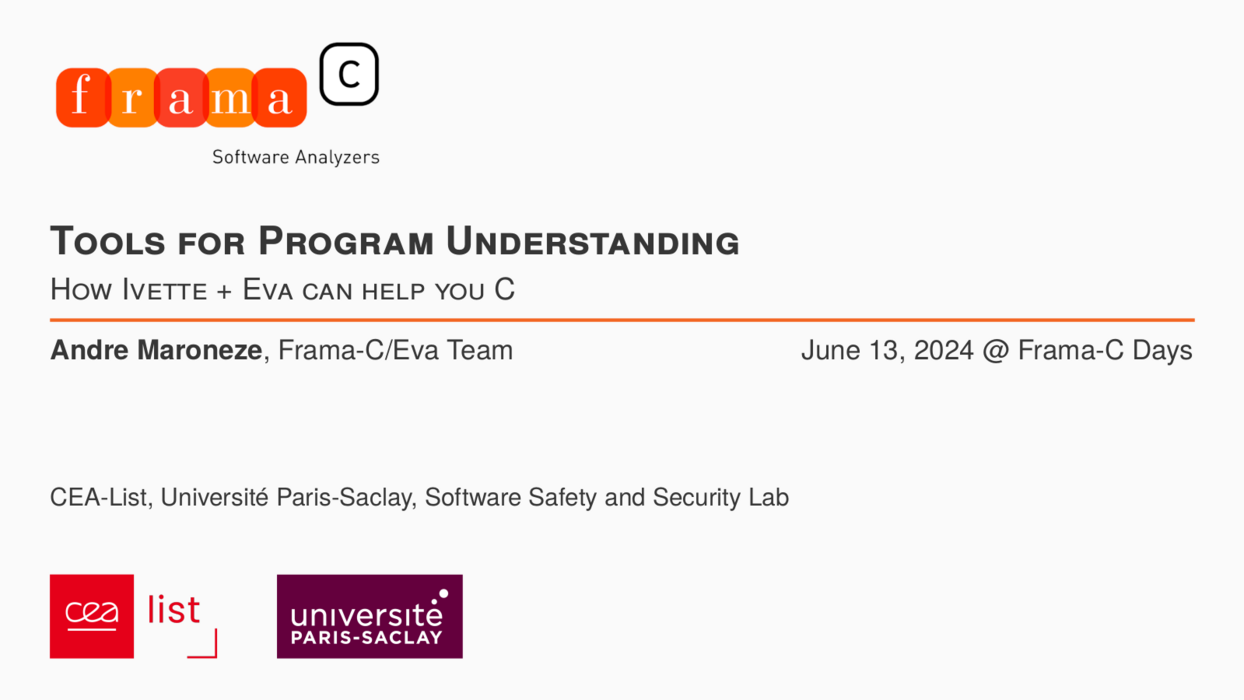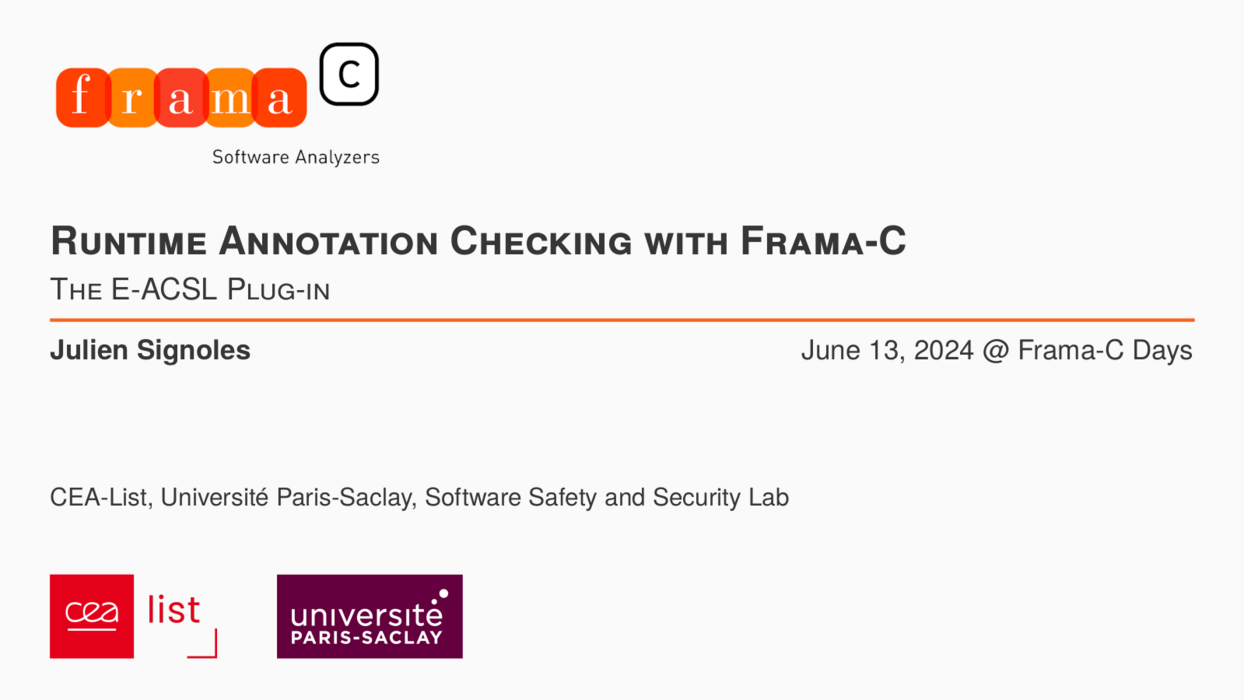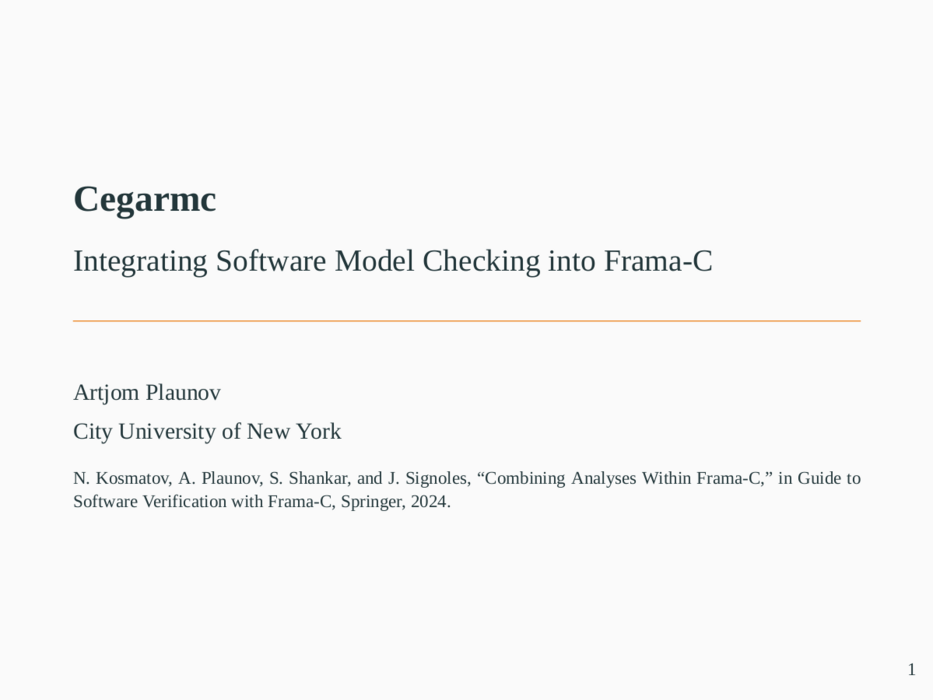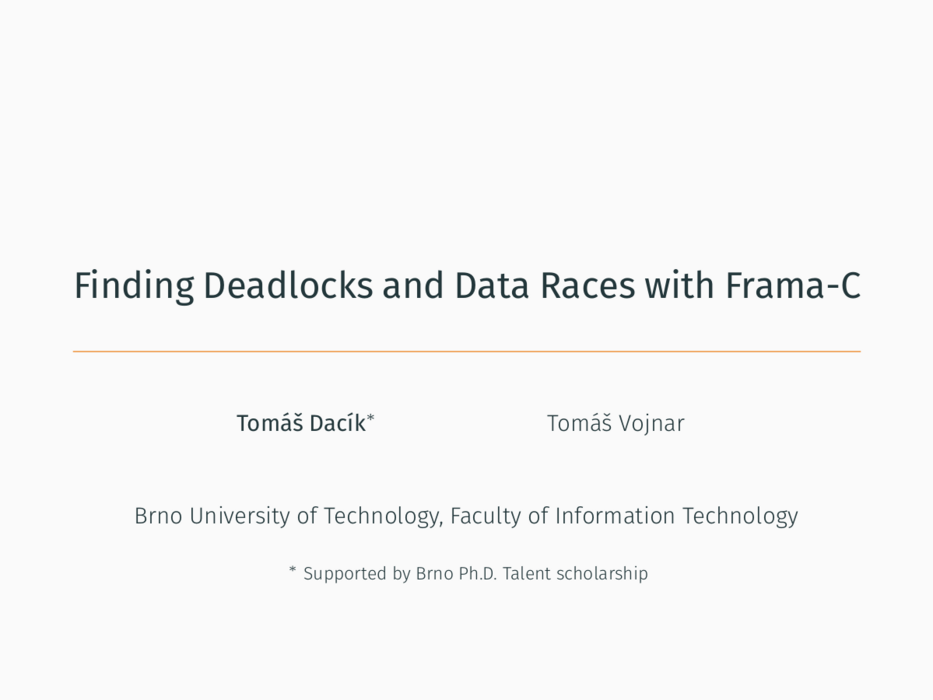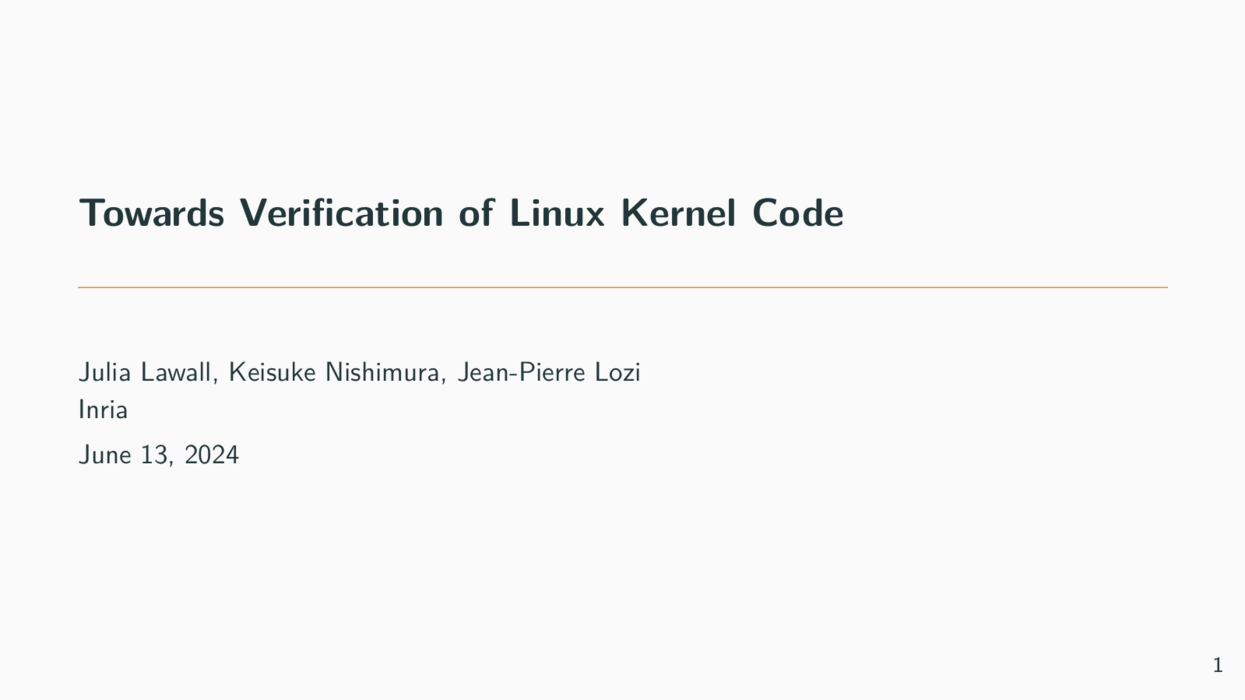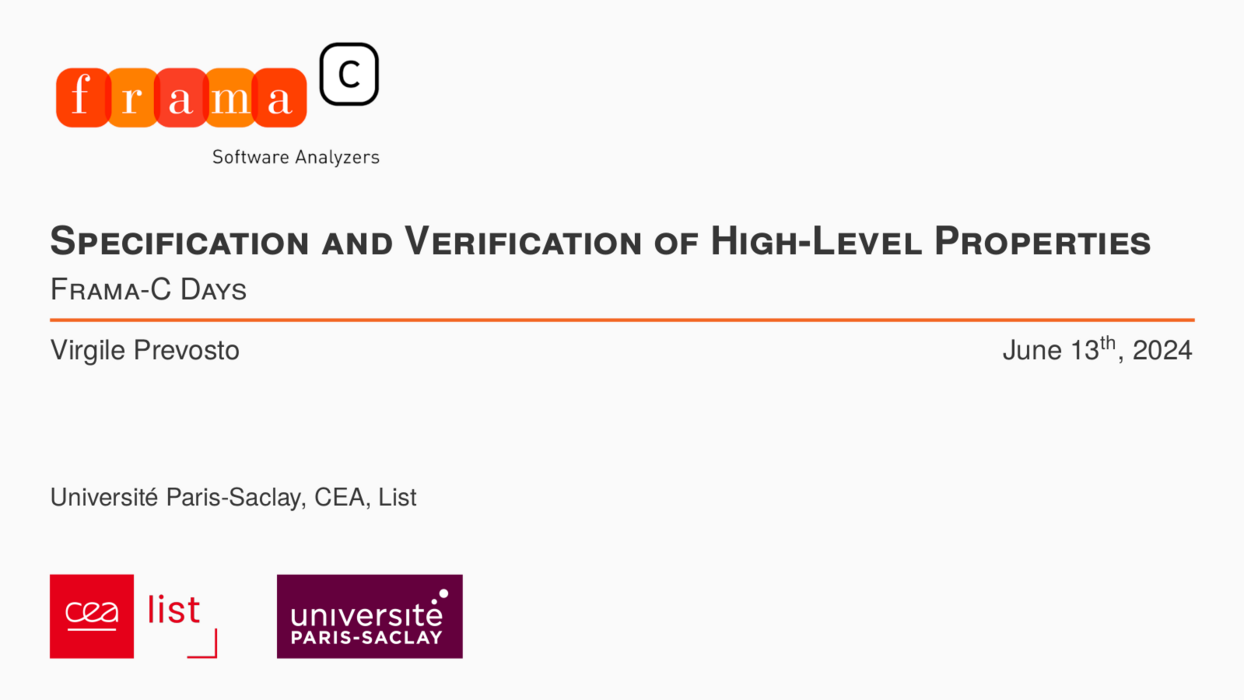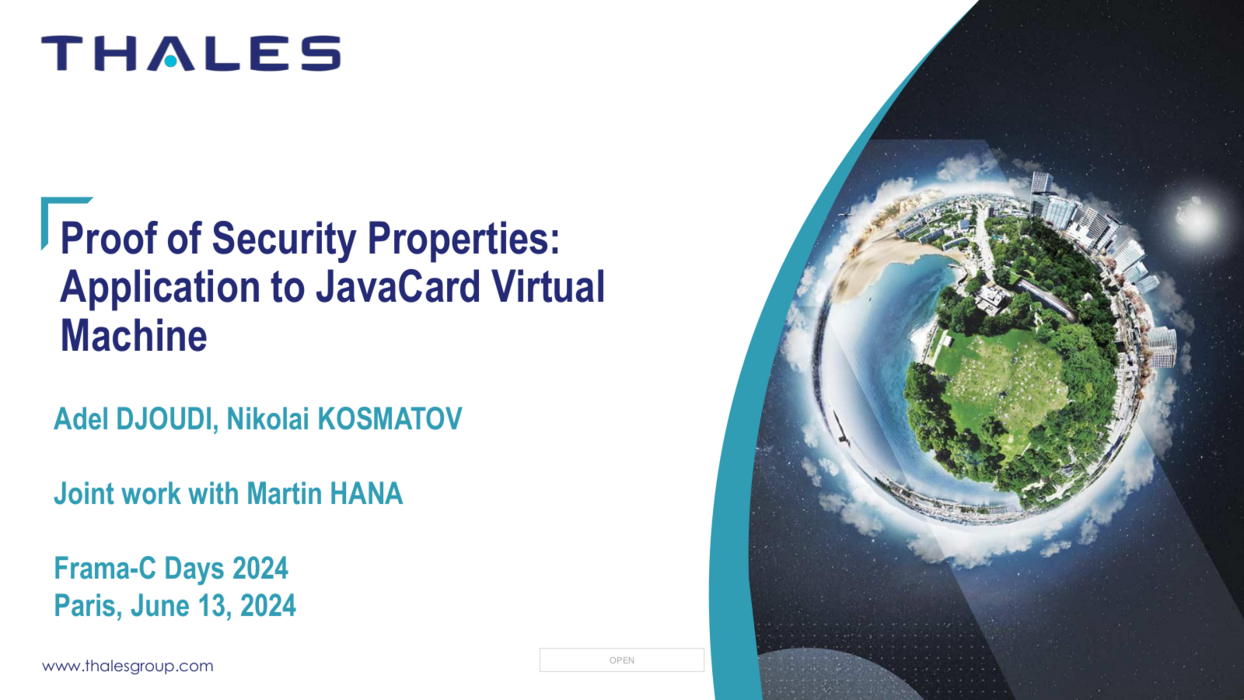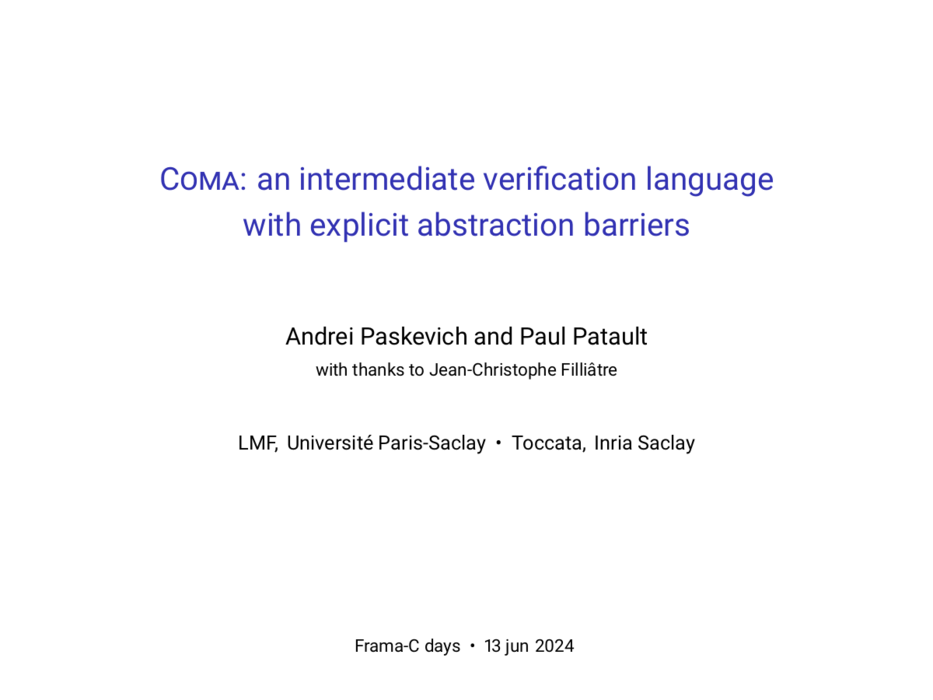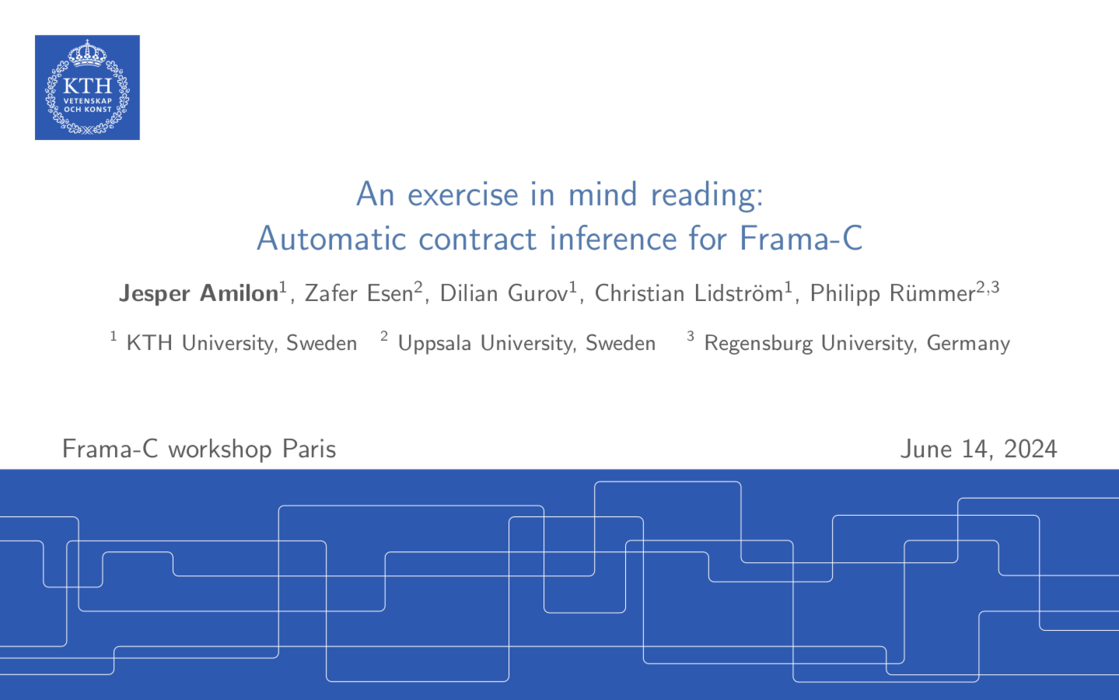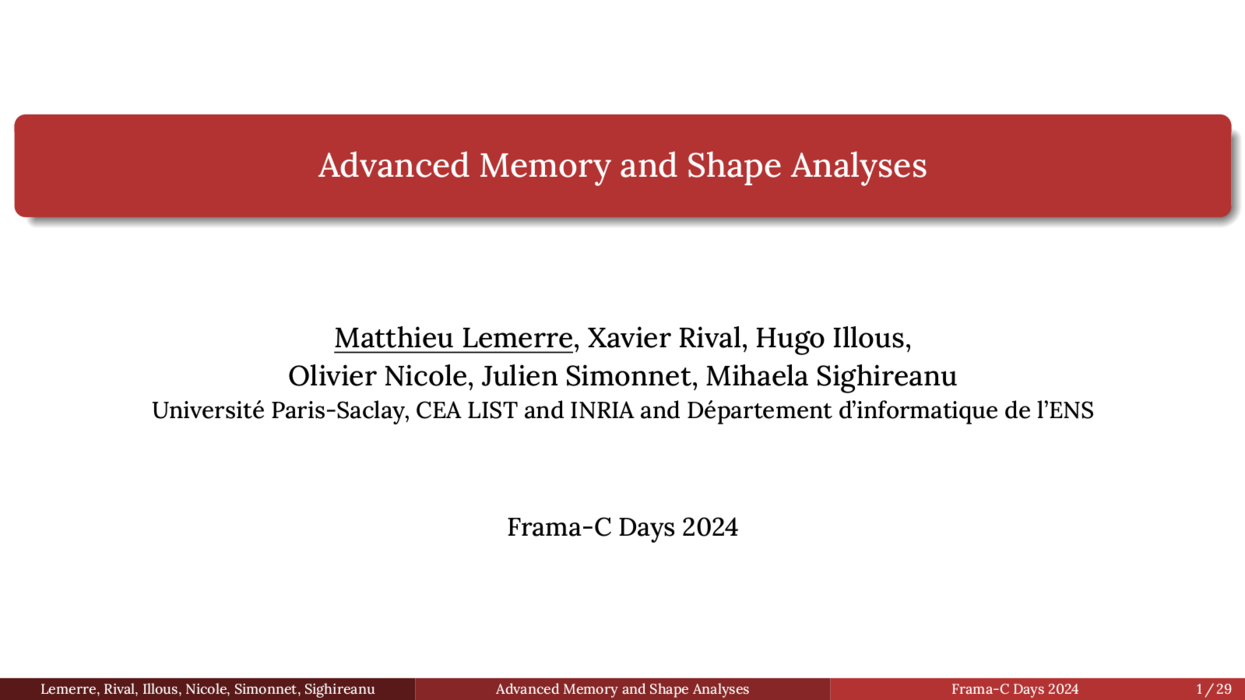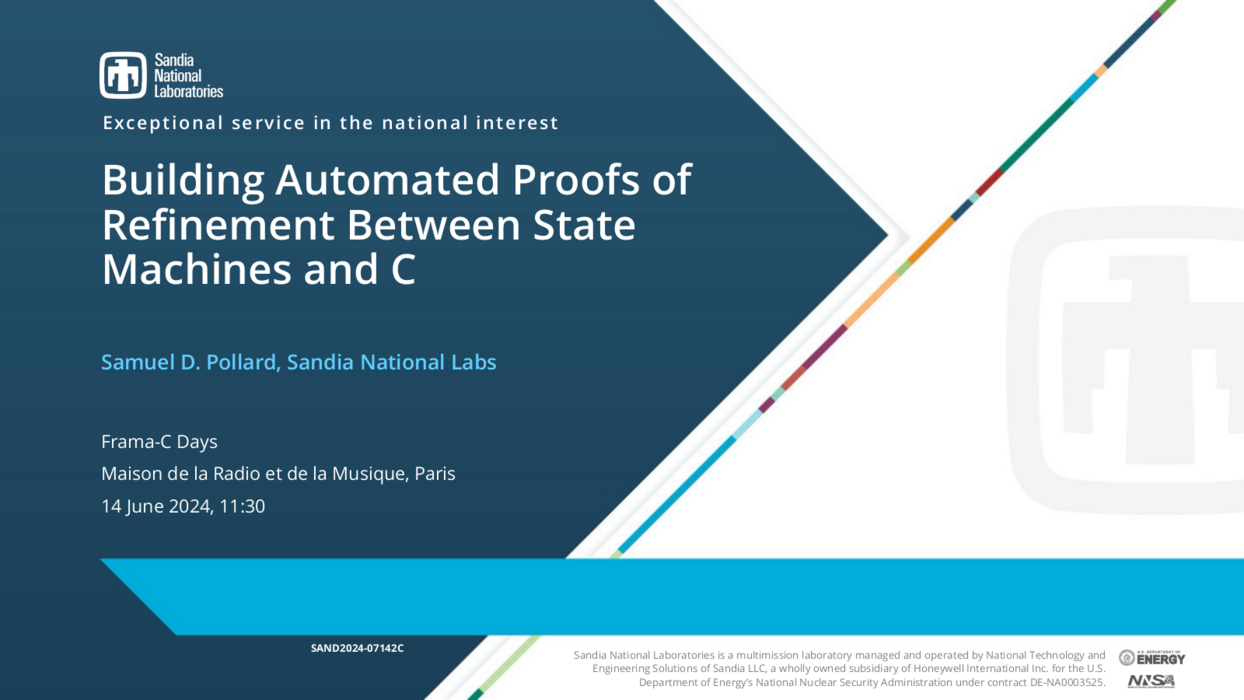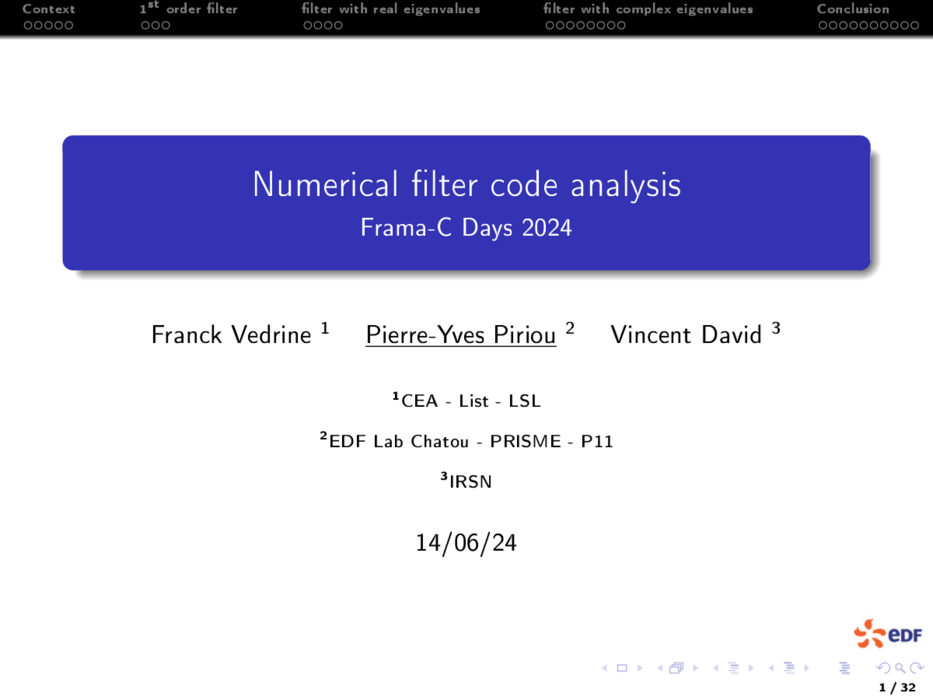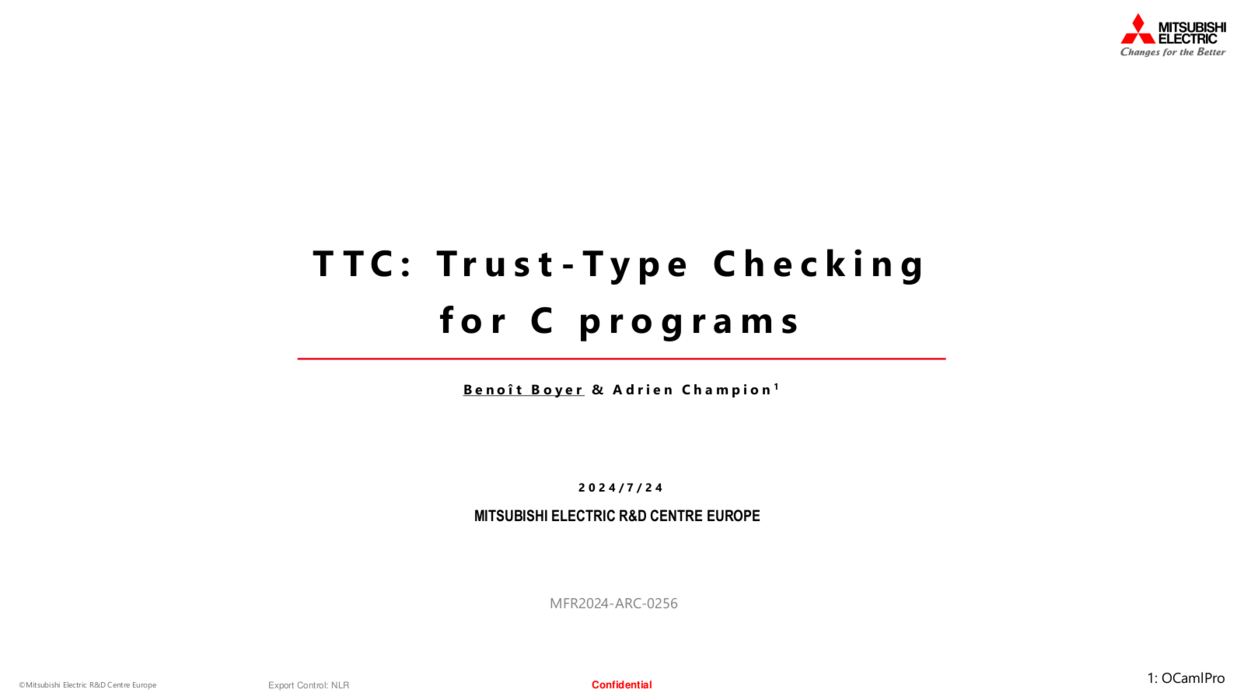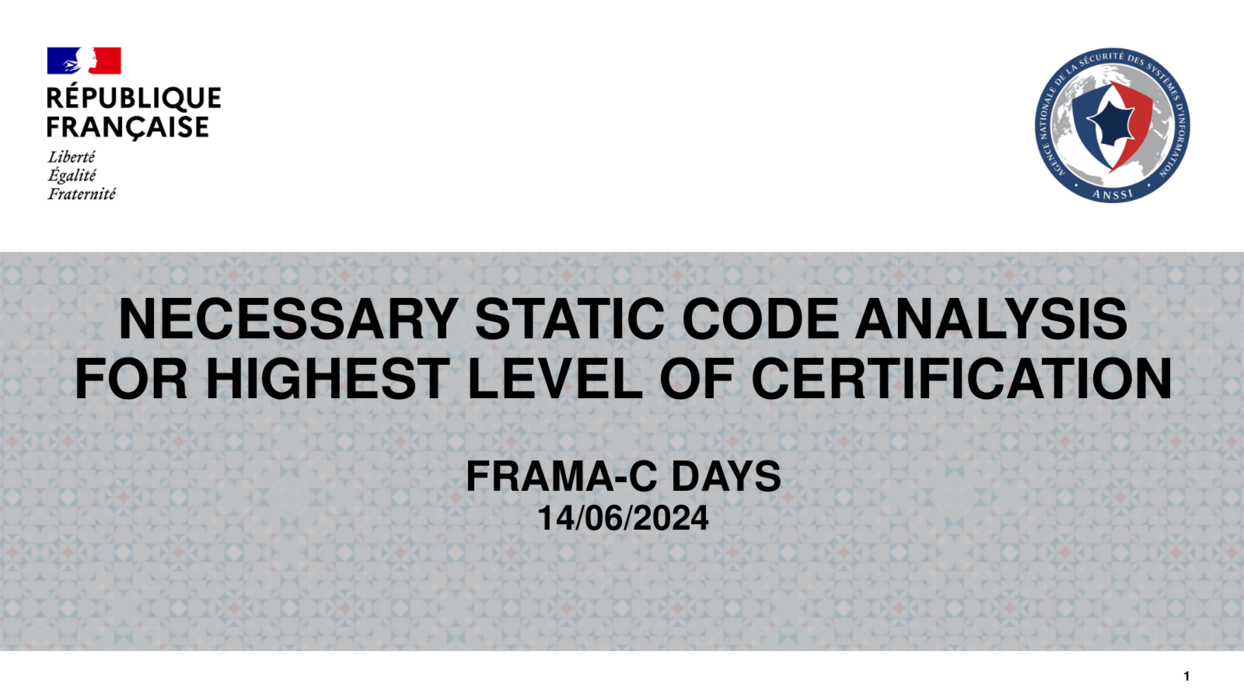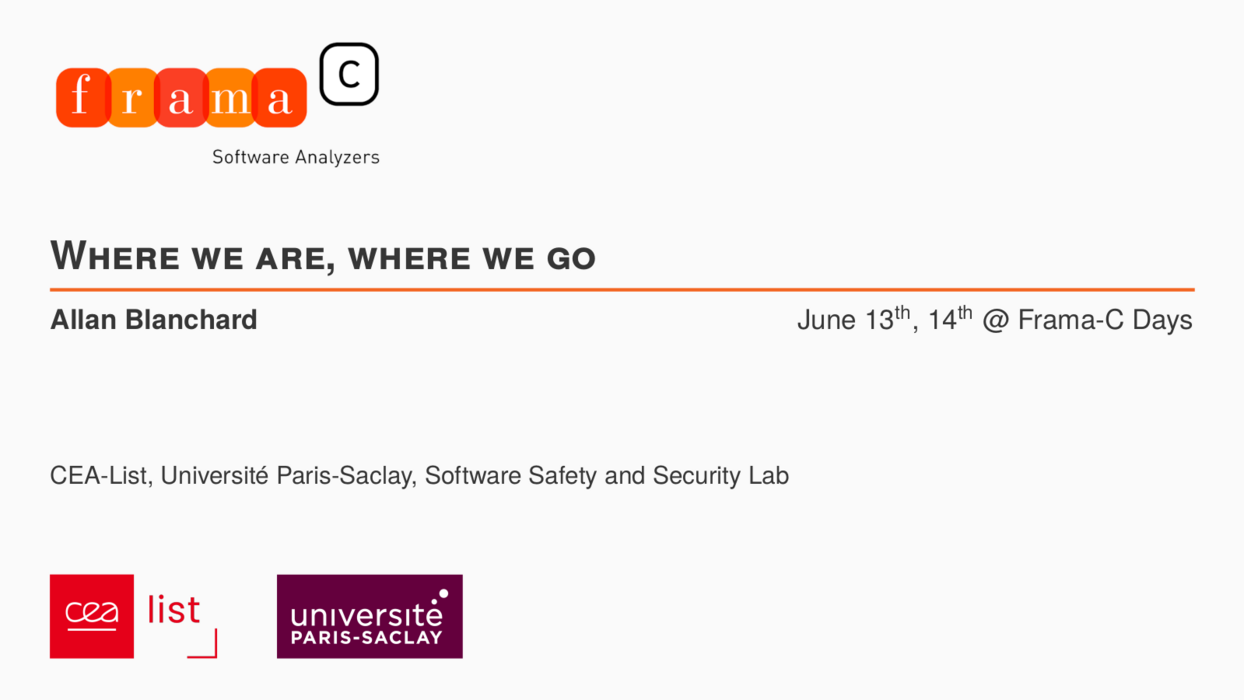Abstract
We present Ivette, the new graphical user interface for Frama-C. Ivette is a complete redesign of our oldish frama-c-gui. Based on a modern web-originated software stack, Ivette offers much more flexibility, benefits from a wide ecosystem, and allows us to welcome external contributors much more easily than its predecessor.
Moreover, contrarily to our old frama-c-gui, the new design of Ivette is based on a clear separation from the Frama-C side (OCaml based, sequential) and the User Interface side (Typescript & React based, asynchronous). The Frama-C side, supported by its new Server plug-in, allows for further integration in other contexts, typically code editors.
Frama-C Server requests are auto-documented and easy to implement by Frama-C plug-in developers. Ivette is built upon React and Electron, and is easily extensible in Typescript thanks to a rich toolkit of ready-to-used components named Dome. A rich middleware is available, which makes using Frama-C Server requests straightforward and quite efficient.
Currently, Ivette has built-in support for only EVA and WP and it is still under active development. Although, we already use it on a day-to-day basis for all of our new projects and we plan to deprecate the old frama-c-gui very quickly.
About the author
- Loïc Correnson is Senior Expert at CEA in formal methods and software verification. He is the main designer and implementer of the Frama-C/WP plug-in for deductive verification, but was also involved for a long time in user-interface development and initiated the complete redesign of frama-c-gui into Ivette.


